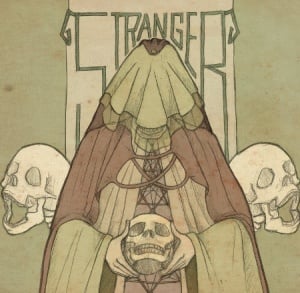Post by Stranger on Jun 13, 2014 13:31:27 GMT
 House Dulver
House Dulver"Earth Yields"
Liege: House Lannister
High above the green and growing Riverlands in the rocky crags and stony canyons of the mountains between Riverrun and the Banefort, Deepen Hall perches like a vulture over a herd of fatted calves. House Dulver, which claims the ancient mountain fastness as its seat, does little to assuage that impression. Shrewd, grasping and mean, the Dulvers hover on the edge of richer lands with hungry eyes on their neighbors, ready to make a meal of any one who falters. Though nominally sworn to House Lannister, Lord Dulver’s first loyalty is ever to his own ambitions.
Mudge the Bronzeman, say the Dulvers, was the first of the First Men to dig in the earth of Westeros, and it is to him that they trace their line and the founding of their name. It was from Mudge’s forge that the First Men armed themselves with spears and swords to drive out the Children of the Forest. It was the axes that Mudge made that cut down the weirwoods.
But the Dulvers were known for practicality rather than zealous loyalty. When the peace was made, they planted a godswood within the walls of Deepen Hall and spoke their vows before the Old Gods. When the Andals came, the Dulvers built a seven-sided chapel and Lord Dulver took an Andal wife. And when Aegon came, they learned to love dragons. Whatever else may be said of them, the Lords Dulver knew where power lay, and strive in every generation to see that their allegiances lay with it.
For all their cunning, though, the Dulvers have rarely been rich or powerful in their own right. Their holdings are small, remote and poor—stony hills and spare pastures. Their people are few. The Dulver knack for knowing which way the wind blows has served mainly to ensure survival rather than promote enrichment. Leastwise until Lord Harald Dulver took the lord’s chair.
Lord Harald’s father, Lord Hemmel Dulver, called Pinchpenny, was a notorious skinflint. It’s said around the tavern tables that the late Lord Dulver was so miserly that it took his lady wife locking herself in her chambers for a month for him to agree to serve more than turnip gruel and cider at their only daughter’s wedding. For all his reticence to spend coin on luxury though, Lord Hemmel had a miraculous nose for a bargain. He employed a veritable legion of factors combing the countryside for goods that might be acquired on the cheap. He bought up the goods of impoverished houses, the discarded weapons of defeated armies, brass hinges and bronze urns, books and candlesticks and iron tools. And when he had filled the cellars beneath his hold, he had his miners dig more.
When Lord Hemmel perished of a chill in his forty-third year (taken from his cellars while counting great casks of iron nails) he left his heir his name, his lands, and a hundred cellars stuffed to bursting with the castoffs of seven kingdoms. Some might count this a burden, but Lord Harald had two things his father had always lacked—ambition and the willingness to sell.
There was little enough wheat among the chaff Lord Hemmel had gathered, but Lord Harald found it all. Through patience, will and a vicious knack for haggling, the new Dulver found buyers for the strangest things and in the strangest places. Every penny that came to him he sent back out to bring in more. And while he had his father’s nose, young Harald had a more discerning eye.
By the time of Robert’s Rebellion, Lord Harald was doing a brisk business taking the lead and tin and copper that the mines upon his land would yield and turning them into gold and steel and more. He had also got himself a Lannister wife by way of Lannisport, a cousin to Lord Tywin and the Lannisters of the Rock. And when Lord Tywin kept his men at home, so too did Harald Dulver.
Each time a messenger arrived below his gates, Lord Dulver threw them open and welcomed them most warmly, be they Robert’s men or Aerys’. But when they asked for men he had but to show them around the castle and let them see his ill-manned walls. “I have but blind old codgers and callow boys, my lords,” he said. “But I cannot let you go emptyhanded.” And so he sent them each away with casks packed with salt pork or wayns laden with new boots, but never men.
When finally Lord Tywin marched from Casterly Rock, Lord Dulver met him on the road with three hundred foot behind him. As the Dulver men joined the Lannister host and marched on King’s Landing, Lord Lannister asked from whence these men had come. “My cellars,” said Lord Harald. “I had misplaced them behind some turnips. I hope His Grace will understand.” And so Lord Dulver’s turnips and the Lions of the Rock marched up the road to sack the city before bending the knee to a king.
In the years since Robert’s Rebellion, House Dulver’s fortunes have advanced steadily, if slow. The mines that dot their holdings are not so rich as their cousins’, yielding lead and tin and copper instead of silver or gold. But even kings need chamber pots and spoons. When his neighbors need a thing, Lord Dulver can provide. Arrows, swords or the men called Dulver’s Turnips. Grain or salt or seeds. Two of everything in his cellars, it’s said. And acre by acre, Lord Harald’s domain grows because the Dulver always takes his price.



 It's set just before the historic Blacks v Greens period
It's set just before the historic Blacks v Greens period